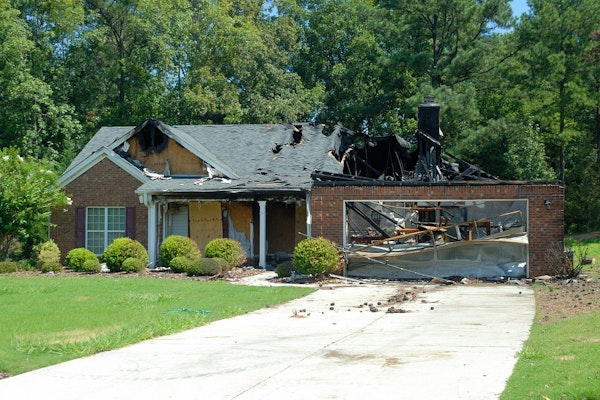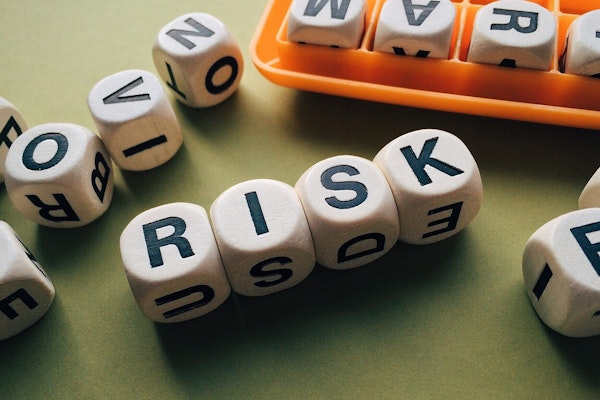
How A One-Two Weather Punch And AWOL Adjusters Became A Property Program’s Perfect Storm
Risk managers never sleep easy, nor do they take anything for granted. Charlene Schultson, the Executive Vice President Commercial, North America, for the Patriot Mutual Insurance Company, is no exception.
April 12, 2023
Property
Risk Management

Backup Plans: How To Preserve Institutional Knowledge As Employees Depart
The Great Resignation and Silver Tsunami have received a lot of recent attention as two workforce trends making a significant impact on organizations. With the workforce rapidly graying, some employment experts are saying we are in the midst of the ‘Great Retirement.’
April 12, 2023
Risk Management

"Risk Management Is Shifting" -- The Institutes CEO
A predict and prevent approach to risk management is becoming more significant as technological developments create added value for both brokers and their policyholders.
April 7, 2023
Insurance Industry
Risk Management
Technology

Zurich Latest To Drop Out Of Net-Zero Insurance Alliance
Zurich Insurance Group has become the latest Net-Zero Insurance Alliance (NZIA) member to quit the organization within days, hot on the heels of Munich Re.
April 6, 2023
Insurance Industry
Risk Management

Drones Tapped To Improve Risk Management
Drones have been deployed by insurers and risk managers for several years to better assess risks, respond to catastrophes and improve claims efficiency.
April 4, 2023
Property
Risk Management
Technology

Psychological Safety In The Workplace
Any workplace knows to follow certain physical safety guidelines. If you’re handling biological waste, you wear protective gear and wash your hands. If you’re working with power tools, you know to use ear and eye protection.
March 21, 2023
Risk Management

2017-22 Losses A ‘Wake-Up Call’ To Better Assess Climate Risk
The record global natural catastrophe losses between 2017-22 are a ‘wake-up call’ for the industry to ‘better assess, manage, and transfer’ the risks of future climate-related events, saids Mohsen Rahnama, CEO of Moody’s RMS.
March 16, 2023
Risk Management
Underwriting

How Digital Twins Help On Climate
Digital twins help insurers leverage high-quality data to counter unpredictable weather conditions caused by climate change.
March 14, 2023
Property
Risk Management
Underwriting

Preparing For New Business Email Compromise Attacks
Business email compromise (BEC), also known as ‘CEO fraud,’ is one of the most expensive forms of cyberattack, yet companies continue to overlook it as a significant and active threat to their bottom lines.
March 13, 2023
Fraud
Risk Management

IoT Device Saves Homes, May Help Prevent Wildfires
Internet of Things (IoT) technology offers homeowners the ability to predict and prevent costly damage to their dwellings and other property -- and it also may help head off devastating natural catastrophes.
March 9, 2023
Property
Risk Management
Technology

Why The Institutes’ CEO Pete Miller Thinks A Predict & Prevent Focus Will Revolutionize The Way Society Approaches Risk
Benjamin Franklin, in urging a more robust approach to firefighting in Philadelphia, wrote: ‘an Ounce of Prevention is worth a Pound of Cure.’ Today, nearly 300 years later, we see again that prevention is needed.
March 3, 2023
Risk Management

Risk Trends For 2023
Some economists are forecasting a deepening recession in 2023. While there are varying measurements to determine what qualifies as a recession, the consensus is that rising interest rates and high inflation will continue to put the squeeze on Americans’ wallets in the new year.
February 27, 2023
Risk Management

Chubb Releases Report on Supply Chain Risk
As part of a two-part series focusing on present and emerging supply chain risks, Chubb analyzed the current international supply chain risk landscape to identify some of the main issues impacting businesses around the world.
February 21, 2023
Risk Management

California’s Recent Floods Prove We’re Not Prepared for What’s Coming
As recent weather events in California demonstrate, most property owners should be doing much more to prepare for heavy rains and flooding.
February 20, 2023
Insurance Industry
Property
Risk Management
California

CEO Viewpoint: It’s No Longer Enough To Just Insure
The expansion of the insurance value chain to include risk mitigation has been underway for decades. But in recent years, it’s been rapidly progressing toward a tipping point where the ‘insurance’ sector brand will be reinvented as ‘risk management and insurance.’
February 9, 2023
Insurance Industry
Risk Management





